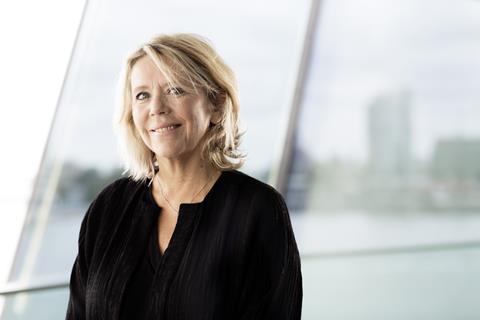The Netherlands Film Fund is reconsidering the way it finances films to put more money into fewer titles following the publication of a ‘Benchmark Study’ report by UK-based consulting firm Olsberg SPI that looked into why Dutch films are not performing to their fullest potential at the international box office.
The research was commissioned by former fund head Bero Beyer a year ago. The aim was to explore why Dutch films lagged behind those produced out of similarly-sized markets by Danish, Swedish, Belgian and Austrian producers when it came to securing international distribution and berths at major film festivals.
“People need to have the time to really develop the scripts and to start making the film when they really think that it is ready, not over hastily,” said Sandra Den Hamer, interim CEO of the Fund.
She talked of giving filmmakers “the freedom, the support that actually they need and also to think more about visibility of their films. Why do you want to make this film and for whom?”
Meetings between the Fund and producers and filmmakers’ associations about future policy are already underway.
“We feel it is time to rethink,” said Den Hamer. “But this isn’t something we want to do alone [at the Film Fund] We would like to have these conversations with producers, directors, and writers.” it’s a reality check about what is happening.”
Changes have also already been made to some of the Fund’s working practices. There are now fewer funding round. The idea here is to give filmmakers more time and free them of too much administration.
As budgets have risen by almost 20%, partly due to inflation, applications to the Fund rose to 2,300 a year in 2022 compared to 1,400 in 2019. The figures reflect features, animation, documentaries, series and shorts but the report focused only on features.
Deep dive
The study was unveiled last weekend in a session at the Netherlands Film Festival in Utrecht. It trawls data from 2010-2022 to look at numbers of films produced, box office results, awards at top festivals, and Oscar and EFA recognition.
At the research underlined, no Dutch film has been awarded a top prize at any of the Cannes, Venice, Berlin or Sundance film festivals within the period. The Netherlands produced significantly more feature films than any of the other countries studied. The Dutch industry produced 487 feature films between 2010 and 2022. Jonathan Olsberg, executive chair of Olsberg SPI, said that if countries thought they weren’t doing very well, it is unlikely they would want to take this deep dive. If there were countries that thought they weren’t doing very well, possibly the last thing they would want to do is this deep dive,” said Olsberg SPI executive chair Jonathan Olsberg.
Den Hamer, who took over as interim chair from Beyer earlier this year, said the priorities of the Fund needed to change in line with the transforming market place.[the Dutch]”In the years before the pandemic, a lot of the activities of the Fund were very much focused on growth and ambition.”
During the Covid period, the Fund concentrated on supporting filmmakers.
“When we opened up after the pandemic, the world had changed,” Den Hamer continued. “The public in the Netherlands was not going back to the cinemas as much as we wanted.”
Anxieties about the international performance of Dutch movies, already present, were further fanned in Cannes last year when several Belgian titles were chosen in official selection.
Local commentators began to ask why the Dutch industry couldn’t keep pace with other countries of comparable size like Belgium when it came to festival recognition abroad and box office performance. This prompted the Fund to commission the research.
Den Hamer pointed out some Dutch films are performing well at festivals, especially documentaries, children films, animation and VR productions.
And there are notable exceptions. Ena Sendijarevic’s second feature, Dutch Oscar entry Sweet Dreams won two awards in Locarno. It was also nominated for a European Film Award. She said she would stay in her position until the end of next year.
“I will lead the Fund in this period of transition and then, at a certain point, I feel it is time for a new generation,” she said.
Krishnendu Majumdar, Fiona Lamptey among latest judges for The Big Screen Awards 2023



